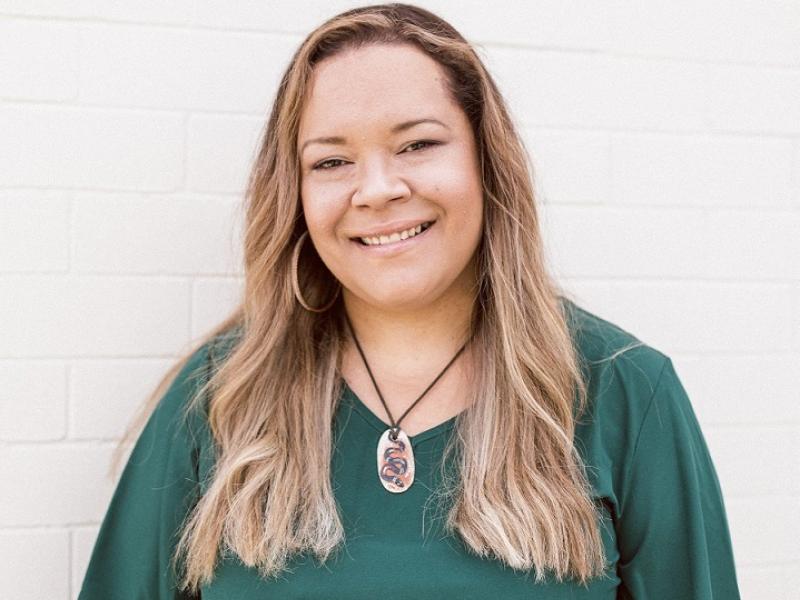NAIDOC Week 2025’s theme of strength, vision and legacy for the next generation is close to the heart for Mind Australia Board Director Leilani Darwin. Leilani is a proud Quandamooka woman who is well known within the mental health sector for her work and leadership in suicide prevention and youth mental health.
Leilani’s work draws upon her experiences of losing many loved ones to suicide, an upbringing exposed to family and domestic violence, time spent in foster care and split from her two sisters, and her own subsequent mental health challenges.
“My biggest drive has continued to be about what I can do so that others don’t have to experience what I did,” Leilani said.
“I get the pain, I get the sadness, I get the isolation and the loneliness. I get that this is all you know, and this is how you grew up. But I also get that, with hard work, with really tough bloody decisions that are painful by changing relationships, by changing patterns and behaviours, it can be different.”
Leilani has experienced more hardship than most people do in their entire lives; when she was 10 she found her mother who had died by suicide, she has experienced suicidal ideation throughout her life and survived several attempts and, as a child of Aboriginal and French-Indian parents, she experienced persistent racism from a young age.
Like many people, Leilani had a complicated and at times traumatising experience navigating the mental health system and accessing support. Often, the service she received did more harm than good, but Leilani was able to start healing once she felt that she had been heard and affirmed.
“As a young person I met Chris, a counsellor, and the biggest, greatest gift that I got from her was understanding that all these things that had happened to me were actually terrible. They weren’t normal. But how I felt was normal – the behaviour that I had, the patterns, the hypervigilance. Now I was understanding Complex Post-Traumatic Stress Disorder (CPTSD) and recognising that I’d had CPTSD since I’d been little,” Leilani said.
“I had thought I was going crazy, but actually, I wasn’t. Chris strategised with me about the relationships I’d had and how often people expected me to drop everything and save them, but what was I doing to support myself? Between medication, the counselling and connecting with mob, it worked.”
This happened when Leilani was younger, however, she still struggles daily with complex mental illness and considers herself on a lifelong healing journey.
“I had a significant deterioration of my wellbeing a couple of years ago, burnt out and thought I’d never work again. With the strength of my ancestors and mob I’m slowly moving forward.”
For NAIDOC Week 2025, Mind Australia thanks Leilani for sharing her story, and we celebrate her resilience, commitment and passion to improving the mental health and wellbeing of all Australians, especially young and First Nations people.
Leilani’s story has been featured in John Brogden’s book ‘Profiles in Hope’, and other sources.
